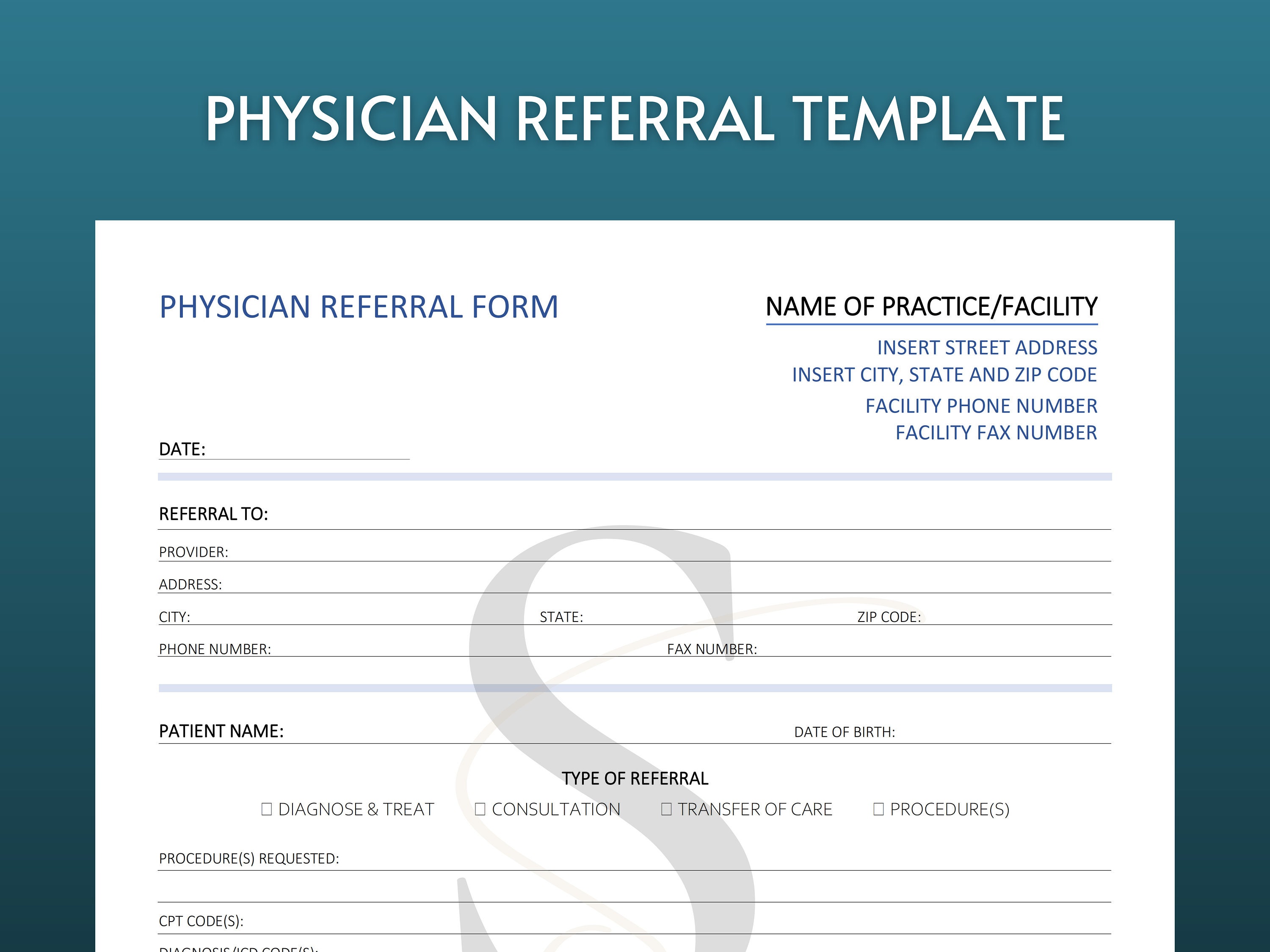When you need specialized medical attention, obtaining a referral can seem like an insurmountable obstacle if you don’t have a primary care physician. But, fret not—there are still avenues to access the care you need. Here’s an in-depth guide to getting a referral without a primary doctor, empowering you to take charge of your healthcare journey.

Image: www.etsy.com
Understanding the Referral Process
A referral serves as a written authorization from a medical professional to another specialist for further evaluation or treatment. Traditionally, primary doctors serve as gatekeepers in the referral system, but with the rise of alternative healthcare models, several other routes exist.
Seeking Care at Urgent Care or Retail Clinics
Urgent care and retail clinics offer walk-in services, providing immediate attention for non-life-threatening conditions. While their scope of practice is limited compared to primary doctors, they can often provide referrals to specialists for further evaluation if your condition warrants it. Check with your local urgent care or retail clinic to inquire about their referral policies and any associated costs.
Contacting Specialists Directly
Depending on the specialty you need to access, you may consider reaching out to the specialist’s office directly. While it’s not a guarantee that they will schedule an appointment without a referral, some specialists may be willing to assess your condition during a consultation and determine the appropriateness of providing care.

Image: www.medifind.com
Leveraging Telemedicine Services
Telemedicine platforms have revolutionized access to healthcare, allowing patients to connect with providers remotely via video or phone calls. Many telemedicine providers can provide referrals to specialists based on your symptoms and medical history. Research reputable platforms, compare their services, and choose one that aligns with your needs and preferences.
Exploring Nonprofit Organizations and Community Health Centers
Nonprofit organizations and community health centers often provide healthcare services to underserved populations, including those without access to primary care. These organizations can assist you in navigating the healthcare system, connecting you with the right specialists, and facilitating the referral process.
Partnering with Healthcare Navigators
Healthcare navigators are trained professionals who provide guidance and support to patients as they navigate the healthcare system. They can assist with obtaining referrals, understanding insurance coverage, and advocating for your needs. You can find healthcare navigators through hospitals, community health centers, or other healthcare organizations.
Additional Considerations
-
Insurance Coverage: Check with your insurance provider to determine if you need a referral for specialist visits. Some insurance plans may cover the cost of referrals, while others may require you to pay out-of-pocket.
-
Cost of Referrals: The cost of obtaining a referral varies depending on the provider and the method you choose. Urgent care clinics may charge a consultation fee, while telemedicine platforms typically have subscription or consultation fees.
-
Preparation: When seeking a referral without a primary doctor, it’s essential to be prepared. Gather your medical records, including any relevant test results or imaging studies. Clearly articulate your symptoms and concerns to the healthcare provider who will be providing the referral.
How To Get A Referral Without A Primary Doctor
Conclusion
Navigating the healthcare system without a primary doctor can be challenging, but with the strategies outlined in this guide, you can effectively secure a referral to the specialist you need. Remember to research options, explore alternative pathways, and don’t hesitate to advocate for your healthcare needs. By being informed and proactive, you can empower yourself to get the specialized medical attention you deserve.